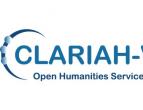In this in-person workshop at the DHBenelux Conference CLARIAH-VL partners, a FWO infrastructure project, will give hands-on demonstrations on a number of tools developed in the CLARIAH-VL is the Flemish contribution to the European research infrastructures DARIAH and CLARIN. The infrastructure brings together 22 research teams representing a range of disciplines from the universities of Ghent, Antwerp, Leuven and Brussels and the Dutch Language Institute. CLARIAH-VL supports the highly diverse and multilingual composition of digital humanities data inherent in European long term history, culture, environment and society. We work to achieve this through facilitating and (semi-)automating as many aspects of the workflows of humanities researchers as possible, to allow researchers to take full advantage of the most recent advances in the fields of machine learning, linked data and semantic technologies especially with regard to digital text and image analysis.
The full-day workshop on 4 June 2024 will be organised in multiple parts with a session for each tool or service. In this workshop we will present three tools: a named entity referencing toolkit, a tool for digital scholarly editing, and a participatory digital asset enrichment platform based on IIIF technology (listed in detail below). Attendees will need their own laptop.
Registeration can be done via the DHBenelux conference website https://2024.dhbenelux.org/ starting in May.
9:00 – 10:30: Named entity referencing and The CLARIAH-VL Named Entity Referencing Toolkit aids humanities researchers to extract, model and contextualise nameable entities (e.g. places, persons, organisations, etc…) from texts, relying on the Wikidata model and identifiers. We will demonstrate the toolkit – introduce the basic functionalities (e.g., Named Entity Linking) and the data model, data interpretation and reporting, as well as demonstrate the data export & import functions. This will be done using the HIPE-datasets.
10:45 – 12:15 : eXtant offers a range of tools to assist with digital scholarly editing tasks of analogue and born-digital material. We will introduce the tools currently available in the toolkit, including the Writer’s Library App (for creating and publishing an edition of a collection of books), Diff Annotator (to enrich text-comparisons of two plain text files), Keystroke Loxensis (to visualise keystroke logging data encoded in TEI-XML), and Axolotl (a collaborative XML editor for HTR postprocessing). After introducing the different tools, we will provide a collaborative hands-on demonstration of Axolotl.
12:15 – 13:30 Self-catered lunch
13:30 – 16:30: IIIF platform Madoc - Madoc is a participatory digital asset enrichment platform based on IIIF technology. It is built on an Omeka S based Open Source platform for the display, enrichment, and curation of IIIF-based digital objects. The platform runs on open source services and technology, bound together to provide a single management interface for IIIF collections. We will demonstrate how you can use this collaborative IIIF platform for transcription, image segmentation, metadata enrichment or harvesting, and annotation – entity caption via rectangles or polygons through the lens of the Gent Gemapt project.
